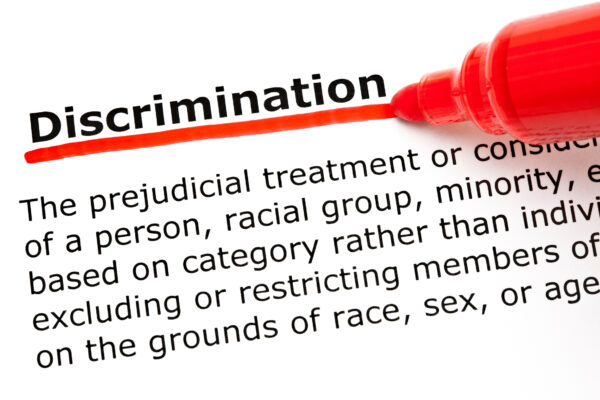Make sure you know your legal rights and options at work.
Under both federal and Ohio law, employees are entitled to a work environment free from illegal discrimination. That includes discrimination on the basis of race, color, religion, sex, national origin, age (if over 40), disability, or genetic information. It also includes protection from retaliation for reporting discrimination or cooperating with an investigation.
However, the laws against discrimination are not self-enforcing. Employees need to be vigilant and report discrimination when it occurs. And because discrimination is often subtle, it can fly under the proverbial radar. That's why you need to know how to recognize illegal discrimination and what to do if you see something.
Some examples of discrimination that can fly under the radar involve:
- Offensive comments related to a person's race, sex, sexual orientation, religion, age, disability, or other protected characteristic. Most people can recognize slurs and other explicitly hateful language, but more subtle comments can also be discriminatory depending on the context.
- Handling of PTO requests. Employers are generally free to set their own paid time off (PTO) policies and change them as they see fit, but they cannot enforce them in a discriminatory manner. For example, if the company grants time off requests for certain religious holidays but not others, that might be illegal religious discrimination.
- Enforcement of policies. Again, while employers are free to set their own professional conduct policies such as dress codes and attendance policies, they must enforce them in a non-discriminatory manner. Enforcing the dress code against women but not men, for example, would constitute illegal discrimination. So would penalizing members of one race for arriving late but not another.
- Opportunities for prestige and advancement. Who are the people who work on the most important accounts or prestigious projects at your workplace? Are they a diverse group? If employees in one category are disproportionately favored for the most important projects and advancement opportunities, that may be a sign of discrimination.
- Inappropriate questions. This one can come up both during job interviews and at an existing job. If your employer seems to be fishing for information they don't need about your race, gender, sex, national origin, disability, or another protected characteristic, that could be a sign of discrimination.
- Unequal pay. If employees are paid differently for the same work based on their race, gender, age, or another protected characteristic, that is illegal discrimination. Keep in mind that your employer cannot legally prohibit you from talking about your pay at work unless you are a manager.
What to do if you suspect illegal discrimination at work
If you believe you're a victim of workplace discrimination, or even if you have witnessed something you think is discrimination, then you have legal protections. Your employer cannot retaliate against you — including demotion, firing, disciplinary proceedings, or any other adverse employment action — for reporting illegal discrimination in good faith. "In good faith" simply means that you report something you believe to be true, even if an investigation finds that it was just a misunderstanding.
With that in mind, there are several actions you can take. One is to report the discrimination to your employer. If your employer has a procedure for reporting illegal discrimination, then follow that procedure. Otherwise, inform your manager (if your manager is the one committing the discrimination, then tell their manager) or human resources. Make sure to get the report in writing so your employer can't claim ignorance later. You can also file a report with the applicable federal or state agency.
However, we also encourage you to speak with a discrimination attorney as soon as possible. Talking to a lawyer doesn't mean you have to file a lawsuit or take other legal action; it's just a chance to get answers about your legal rights and options. If you believe you are a victim of illegal discrimination at work, contact Nilges Draher LLC today. We can help.

